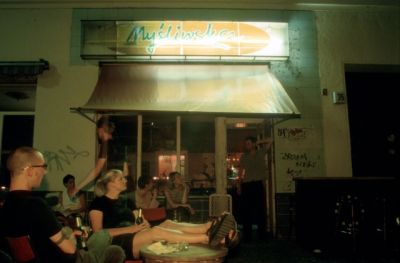The Polish Social Council in Berlin

1982. Martial law rules in Poland. More and more Poles are arriving in West Berlin to escape the repressions of the communist government and in the hope of a new, better life. Most of them do not speak German nor do they know what steps to take. The German authorities and the corresponding institutions are unprepared for this new wave of migrants from the East. There is no information in Polish, and even the most basic support is missing. In the confusion, the Poles who are living in Berlin use informal support groups to absorb the new arrivals. Telephone numbers and addresses of private individuals who can be contacted for advice are passed on from mouth to mouth. Sometimes such information is even exchanged through aid organisations and their addresses.
As Witold Kamiński, co-founder, first chairman and now deputy-chairman of the Polish Council in Berlin, recalls: "The telephone at our home would be ringing until one o' clock in the morning." It was always the same problems. We would help the new arrivals to deal with the authorities, assist them in dealing with a wide range of issues and procure apartments, furniture and the most urgent items. But we were unable to help everyone "
It was against this background that the idea was born of founding an organisation based on the principle of mutual assistance. In this spirit the inaugural meeting of the Polish Social Council took place in September 1982. Since then it has been operating as a non-profit association. Its statutes were drawn up in accordance with the statutes of the German Workers' Welfare Association (AWO). The executive committee of the Polish Social Council originally included the two opposition figures Edward Klimczak and Wojciech Gruszecki, but they soon resigned from office because they did not agree with the idea that the council was by nature apolitical.
As early as 1983 the Polish Social Council began to organise its first cultural events alongside its emergency aid for the needy. The aim was to improve the image of Poles, who were often perceived at the time as little more than welfare recipients. With its “writer's evenings”, concerts and cabaret events, the Council wanted to attract as many people as possible and establish a lively Polish scene. Wojciech Młynarski, Jan Tadeusz Stanisławski and Jan Pietrzak, among others, came to Berlin. The then Berlin-based poet, Ewa Lipska, also agreed to put in an appearance. The solo performances gave rise to the idea of launching the “Polish Cultural Days” festival, which celebrated its premiere in 1987. Twenty-six theatrical performances, musical events and exhibitions took place over the ten festival days.
Over the years more and more migrants from Poland arrived in Berlin. As a result, there were around 80,000 in the 1980s. The peak of social and political change was in 1989. But the problems of the Poles remained the same: lack of information and perspectives, an insecure legal status and scant knowledge of the German language. All this led to a new way of reaching those in need. On 3rd September 1989, the private alternative radio station, Radio 100, broadcast a programme in Polish for the first time. The newsroom worked on the principle of an "open collective". Hence the members of the Polish Social Council were joined by non-members who were nonetheless radio fans. The one-hour programme in Polish covered current topics as well as social and political structures in Germany. It aimed to promote integration and strengthen active social participation, without neglecting Poles' own identity. The station was in existence until February 1991, when it ceased broadcasting on account of financial difficulties.
The promotion of active participation in social life has become one of the Council's particularly important tasks. Advice on legal, social and psychological issues, further vocational training courses, social competence training and assistance in resolving conflicts between generations all serve this purpose. The service is not only used by Poles in Berlin, but also by those living in other German states. Now the Polish Social Council has also become involved in helping refugees. Since April 2016, it has been working with the Turkish community in Germany on a joint project called "Succeeding. Together!", which is dedicated to caring for the families of asylum seekers. So far 250 sponsorships have been established in this connection. Its "godparents" often include Poles who once needed such help themselves. The project is funded by the Federal Ministry for Family Affairs, Senior Citizens, Women and Youth.
The Polish Social Council is continuously expanding its training programme in order to support the professional careers of new arrivals from Poland and to limit the number of job opportunities that do not correspond to their qualifications. In 2014, the Polish Competence Centre (Polskie Centrum Kompetencyjne), financed by the Ministry of Foreign Affairs of the Republic of Poland, was established in cooperation with the Council. It offers a wide range of training courses, including those in labour law, bilingualism, business start-ups, stress management and in the context of emigration isolation. The aim of the project is to improve the situation of the Poles in Germany. This is done not so much by demanding recognition for their minority status as by strengthening their potentials.
Although times have changed with the arrival of more immigrants in Germany, the work of the Polish Social Council is still based on the same idea: to address the urgent needs and current problems of migrants. However, in view of the still increasing number of new arrivals from Poland, the workload of the socially committed helpers in Oranienstraße in Berlin is not decreasing.
Monika Stefanek, October 2017
The web page of the Polish Social Council: : www.polskarada.de









